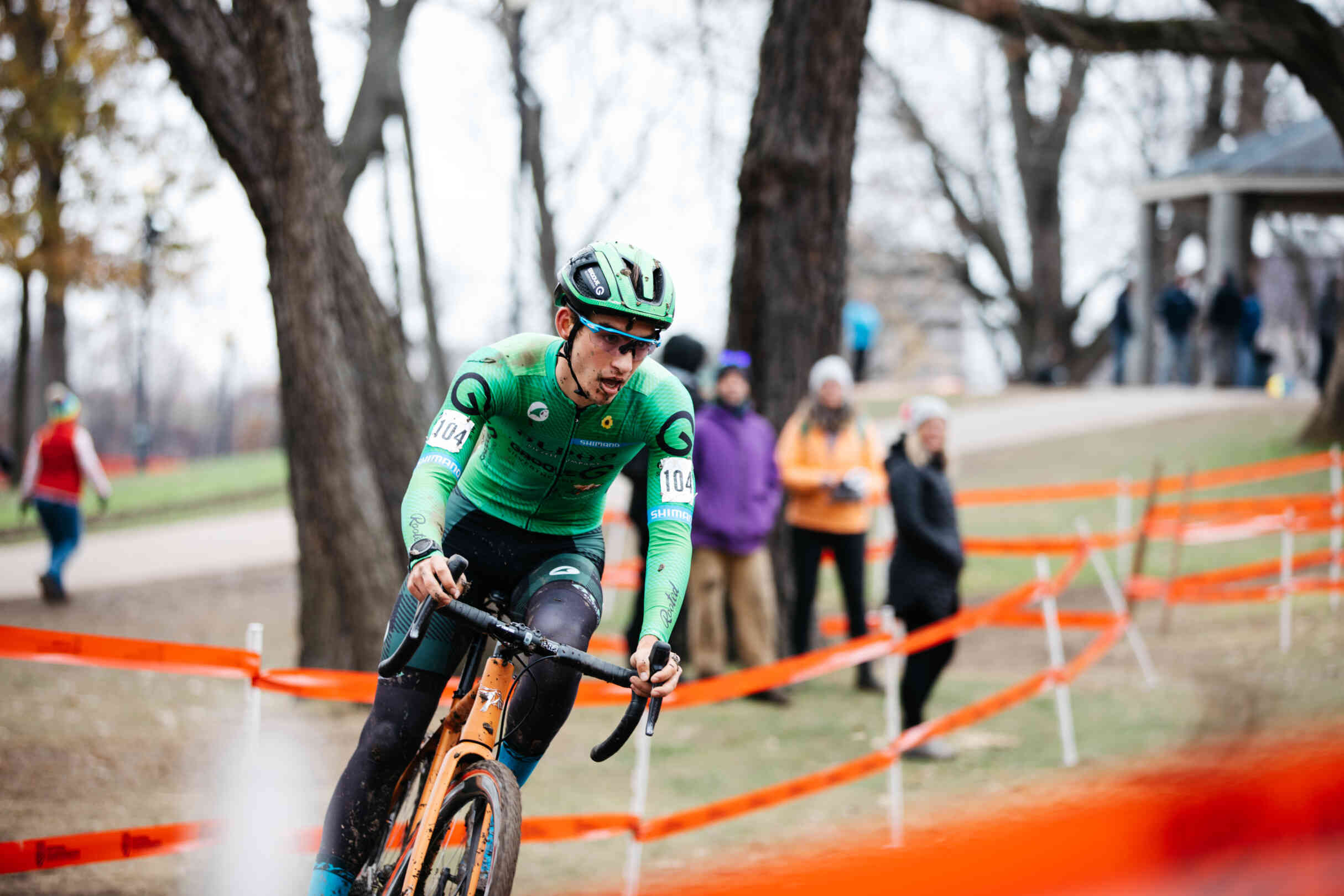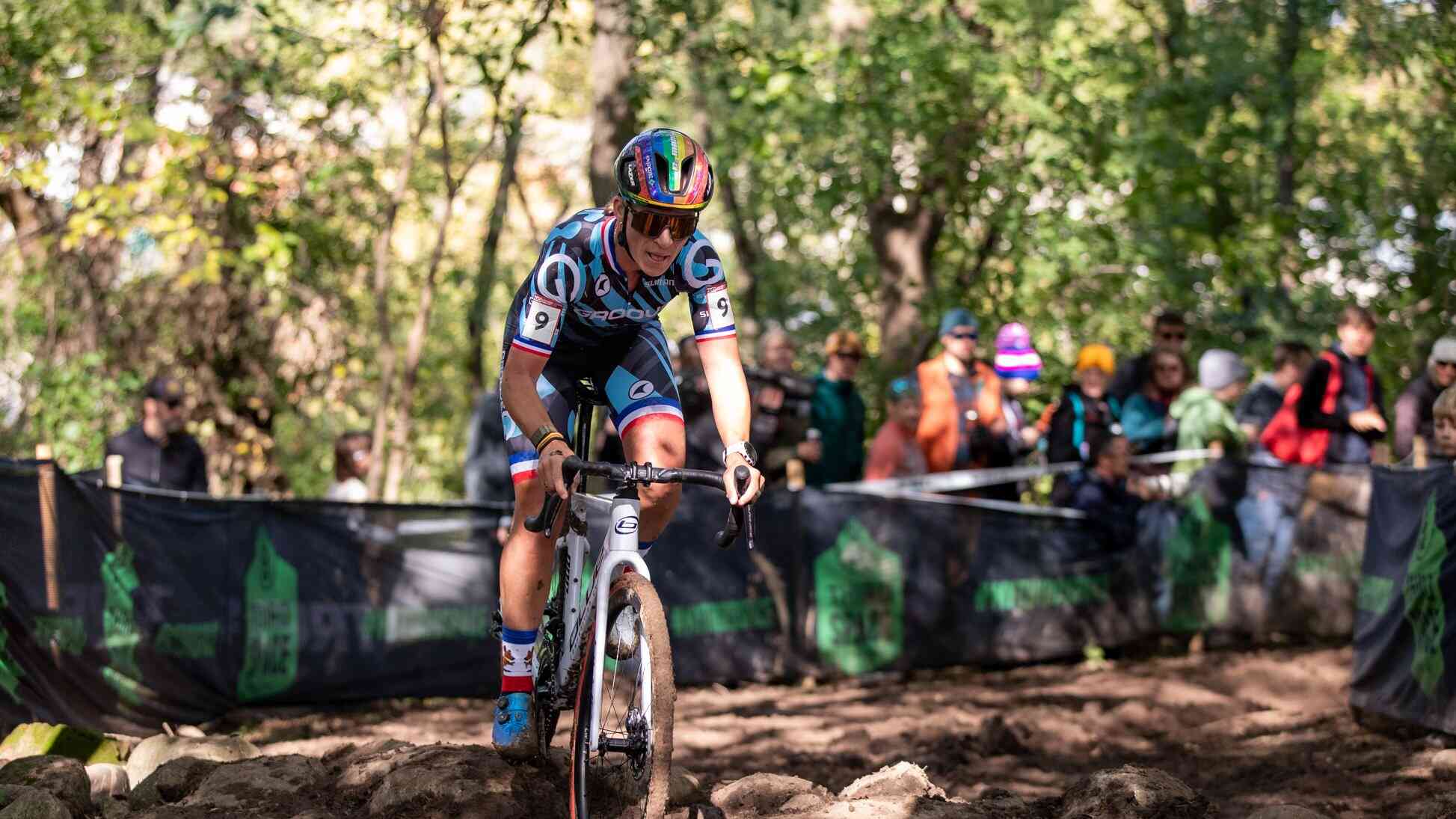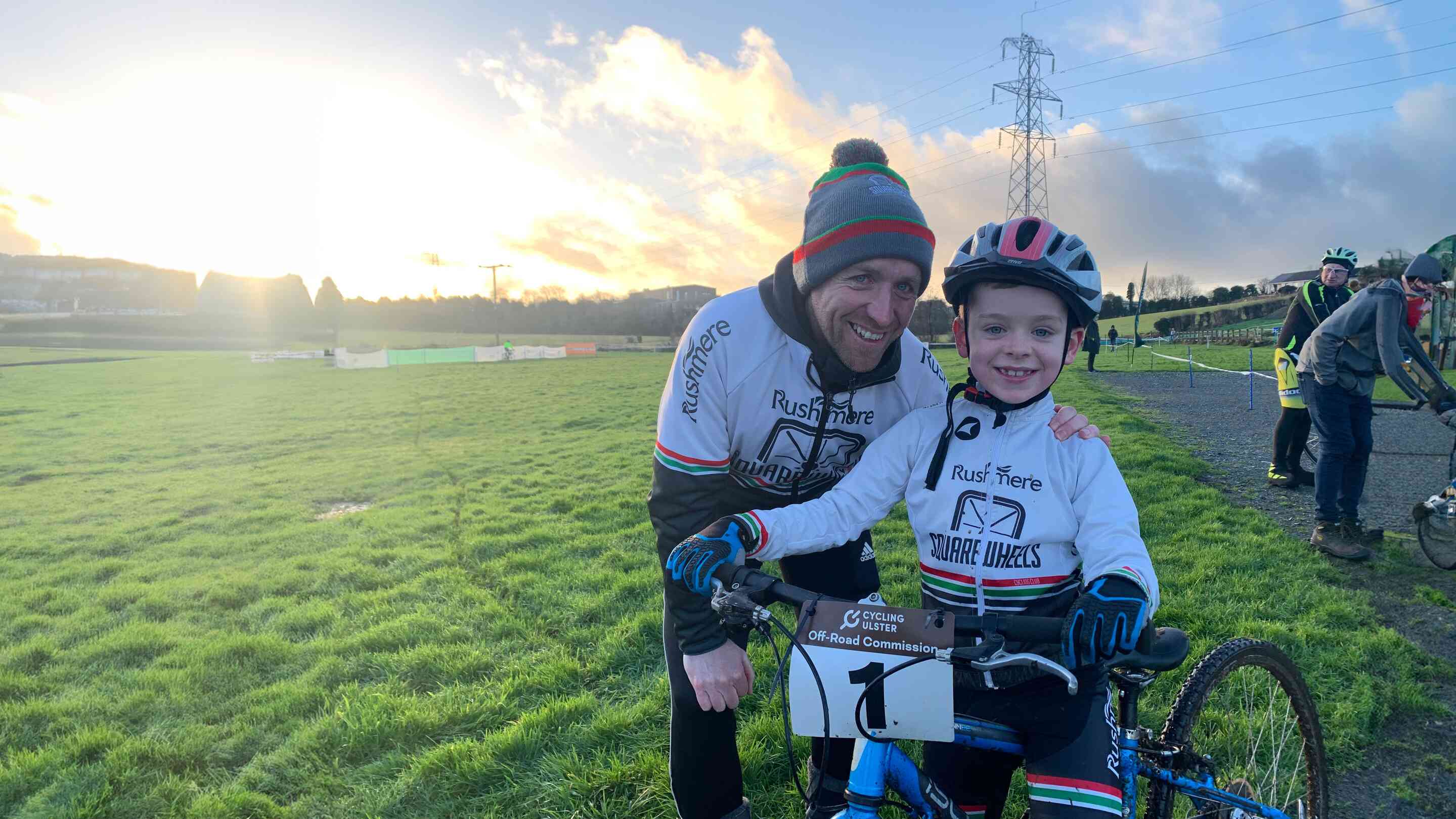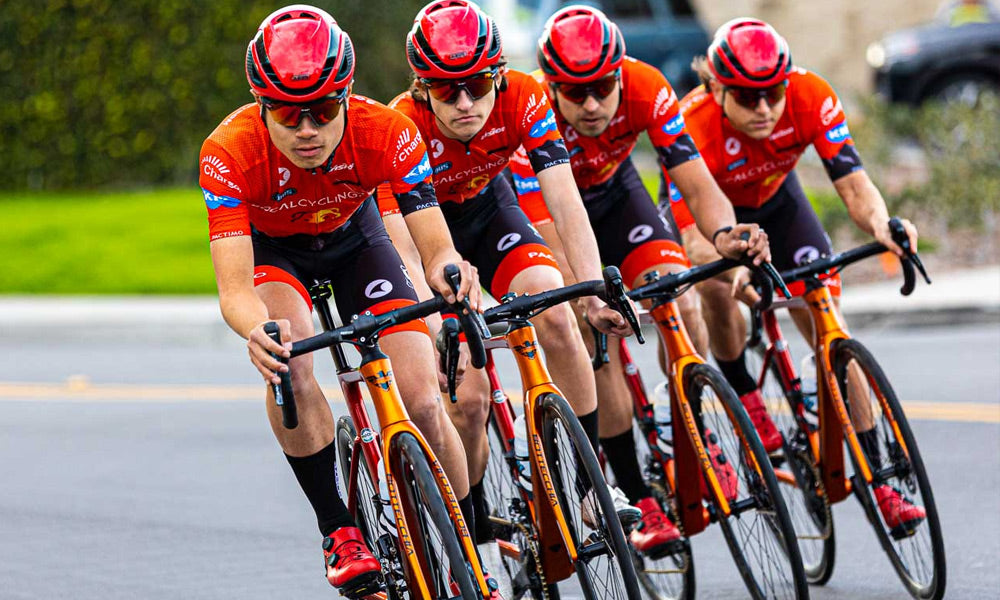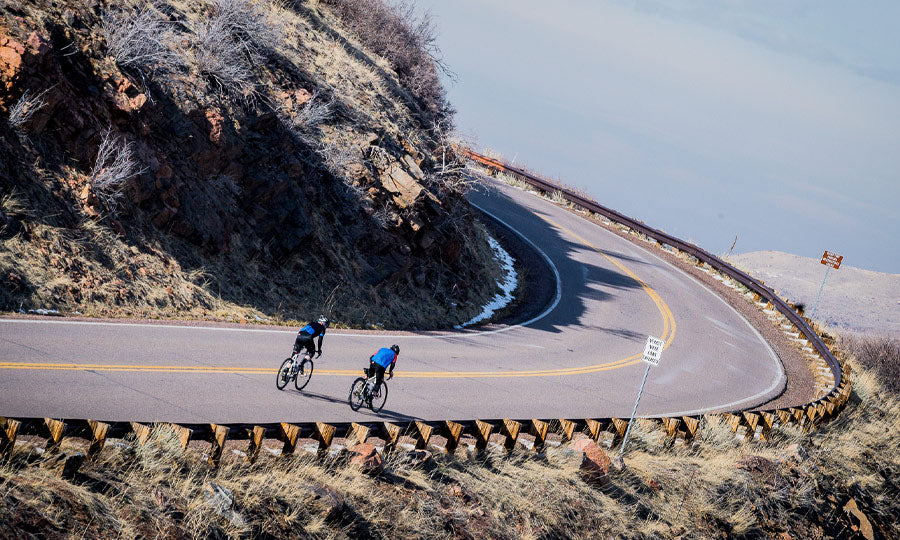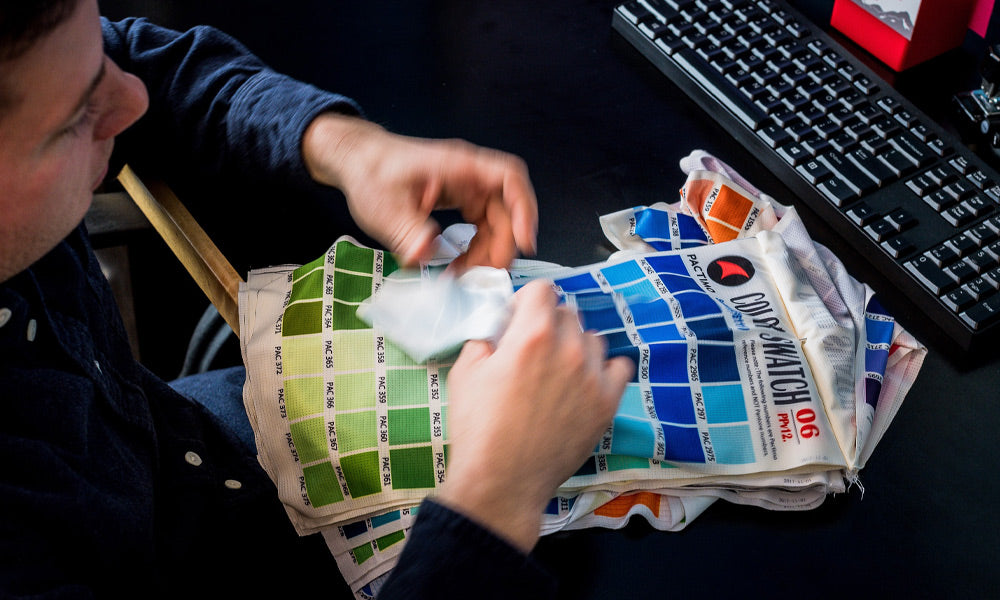Trusting the Process - How Goal Setting Helps Pro Athletes Achieve
What makes athletes successful?
How do you reach the elite level of a sport? What does it take to compete against the best in the world, and how can us 'regular' people without a supercharged VO2 max and tiny body fat percentages take those same techniques and apply them to our lives?
These are questions we set out to answer with the help of three Rally Cycling athletes, Emerson Oronte, Sara Poidevin, and Pier-André Coté.
There's no denying that athletes tend toward being goal-oriented, whether they consciously set themselves goals and write them on a whiteboard at home, or simply focus their efforts toward a particular race.
"As an athlete you have major goals - for example, a big stage race or an event that you'r ereally targeting - and then you break that down all the way into small things that you do each day," explains Poidevin.
 Poidevin at the 2020 La Course by Le Tour de France
Poidevin at the 2020 La Course by Le Tour de France
You probably remember Healthy Habits with Poido, a video series Rally Cycling created during the first half of the year when all bike racing was canceled due to the global pandemic. This was created by Poidevin, who wanted to help people focus on small achievable wins in their daily life.
Coté agrees that goal-setting is crucial for an athlete.
"Goals are a big part of our lives. If you don't have any it's a lot easier to get rough around the edges. If you have a race goal that is really far away, you may feel like you have plenty of time and you kind of forget about the details. You become complacent."
"So one really cool thing Rally® members get access to is Missions. They can take a life change or health goal and start taking steps towards it with the help of the app. And you get the small rewards all along the journey which is super vital when you're trying to maintain momentum and motivation."
Oronte explains that a key element of good goal-setting is achievability.
"My goal next year isn't to win the Nobel Prize in Chemistry, that's just way out of my ball park. But, once I sit down and I get my calendar of events, I'm going to pick a certain goal and I'm going to decide, what do I want to accomplish?"
 Oronte aboard the team bus during Portugal's Trofeu Joaquim Agostinho.
Oronte aboard the team bus during Portugal's Trofeu Joaquim Agostinho.
But Poidevin cautions that there has to be some element of 'reaching' too.
"The goal should challenge you, and maybe even scare you a little bit, maybe be a bit outside your comfort zone."
Oronte adds that in a tough endurance sport like cycling, one needs a focal point to make the daily routine of training hard more manageable.
"You can't deny the fact that you have to be motivated by something in bike racing. It's just too hard, otherwise."
An important aspect that all our athletes mentioned is failure, and responding to that in the most positive way you can. Coté explained.
"I have always loved that quote, 'You can't control your environment, but you can control how you react to it.' If I don't achieve a goal, I just want to know that I've done everything I can do. If I've tried everything properly, I can't beat myself up too much about it."
 Coté Post-Race at the Gran Prix Isbergues in France.
Coté Post-Race at the Gran Prix Isbergues in France.
Poidevin points out that in bike racing, even more than other pro sports, you often don't win the races you set out to.
"Inevitably you're going to get beat, sadly, more times than you'll win."
"I think that's why it's also important to recognize the smaller successes that happen through the season, because if you're just looking at how many victories you got, it can be easy to think 'Oh well, the work that I did doesn't matter. IT wasn't good enough'. But if you can point out areas of improvement you can know that all the work that you're doing on a daily basis is pushing you forward."
Analysis is important, particularly in professional sport. Whether you're an elite bike racer or just a casual runner, the crucial thing when you don't quite make the mark you were reaching for is to assess what happened.
Poidevin explains how that relates to a bike team.
"After races we always have a debrief so we'll talk about the positive things that happened in the race, maybe something we improved on from the last race, or maybe we communicated really well as a team or made good decisions. Then if the result wasn't what we were aiming for, what caused that, or how can we improve on that next time?"
While Oronte adds.
"When I look back on a performance and I assess what could have been different, I just don't want one of those things to have been effort. As long as I gave my whole effort, I'm happy."

Oronte carries bottles to help the team achieve its goals in the Volta a Portugal.
It is all too easy to become over-focused on the overall goal; the weight you want to be, the marathon you want to run in a certain time, or - in the case of pro cyclists - the race you want to perform well at.
However, along the path to that end goal, there will be difficult days, setbacks and other obstacles, and it's how you respond to those that ultimately determine your success.
Oronte explains.
"There are days where it's really hard, I tend to default back to 'OK, waht sort of effort can you put out today'? Because I know it's not going to be a record-setting day. I often call those 'character days', because when things are hard, that's where the character comes out."
Cote adds that the incremental smaller goals we set ourselves soon add up - and are much healthier for us too.
"It can become as small as the last 30 seconds of one single interval in a 10- or 12- interval session. You can't live every day as if you're at the World Championships and trying to win the race. You can't sustain that! You need to trust in your training program, and just finish that particular effort with X amount of watts. You don't always need to be thinking super far ahead."
 Coté focused on the task at hand during the 2020 season finale at Paris-Tours.
Coté focused on the task at hand during the 2020 season finale at Paris-Tours.
While Coté doesn't have to look far for an example of goal-setting in action.
"My dad is a great example. He sets himself a weekly goal of distance to ride on the trainer in a week. If he has a super-busy week, then by Sunday he might have 100km left to do, and he does the whole 100km. If he didn't have that overall goal, he might just do 50im on that Sunday - he would use the excuse that he'd had a long week or whatever. But if he has 100km to his goal, that's how much he's gonna ride."
Summarizing his own approach, Oronte says.
"I'm really into daily goals. I think that's where the battles are won, the day to day stuff. I always tell myself that success is a habit, and habits tend to be the things you do more frequently."
READ THE ORIGINAL STORY ON RALLY CYCLING NEWS

